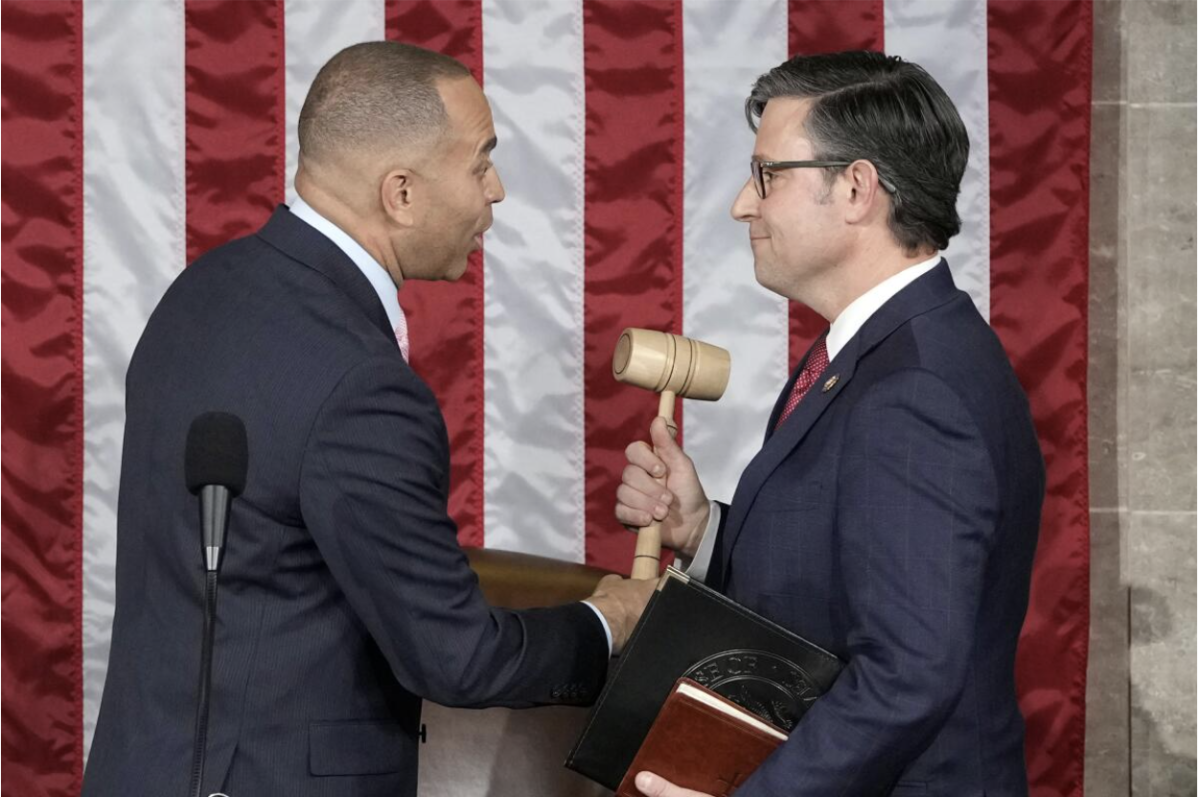In a surprising turn of events, the U.S. House of Representatives recently experienced a major shift in leadership, marked by the ousting of Rep. Kevin McCarthy and the subsequent election of Rep. Mike Johnson as Speaker. The political drama unfolded over several weeks, leaving the House in a state of leaderless uncertainty after McCarthy’s removal on October 3rd. McCarthy’s departure, following a controversial vote orchestrated by a group of eight Republicans led by Florida’s Matt Gaetz, exposed the internal division of the GOP (cbs.com). McCarthy’s supporters credit him with contributing significantly to the party’s current majority, and his removal prompted public infighting among potential successors. “There is always some sort of drama going on in Washington D.C.!” said physical education teacher Coach Maldonato when asked about the issue. Amid this uncertainty, Rep. Mike Johnson, a Louisiana Republican, eventually emerged as the new Speaker of the House. The election, held on October 25th, over twenty days after the ousting of McCarthy, saw a vote of 220 to 209, with House Republicans unanimously supporting Johnson and all Democrats backing Hakeem Jeffries as the Minority Leader (latimes.com).
Johnson’s political background includes service in Louisiana’s state Legislature from 2015 to 2017. He was first elected to the House of Representatives in 2016 (latimes.com) Despite lacking experience chairing congressional committees, Johnson played a prominent role in former President Trump’s attempts to overturn the 2020 election results, aligning himself with the efforts that received major backlash from political leaders on all sides of the spectrum. The new Speaker faces a steep learning curve, considering he is the least experienced in this role in the last 140 years. As Johnson steps into the national spotlight, he must navigate through a time of incredible political unrest with Democratic leaders, including President Biden and Senate Majority Leader Charles E. Schumer. Critical issues on the table include potential funding for Ukraine and Israel in their respective conflicts. One of the first challenges for Speaker Johnson was the decision to make a deal with Democrats to avert a complete government shutdown on November 17. The new bill, opposed by ninety-three Republicans and two Democrats, extends funding for “priorities” until January 19 and the rest of the government until February 2 (cnn.com). The potential shutdown could have far-reaching consequences, affecting military service members and other federal employees just ahead of the holidays. In his first address as Speaker, Johnson acknowledged Kevin McCarthy’s contributions to the House, expressing gratitude for building the current Republican majority (latimes.com)
As the House GOP went without a leader for over three weeks, Johnson’s election provides a resolution but introduces a new set of questions about the party’s future direction. “It’s going to be very interesting to see what happens next,” said Ramapo senior John Henninger. In this period of transition, the eyes of the nation will be on Speaker Mike Johnson as he grapples with the intricate task of leading the House through crucial negotiations and decision-making processes. The impact of these recent developments will undoubtedly reverberate across the political landscape, shaping the trajectory of the House of Representatives in the months and years to come.






